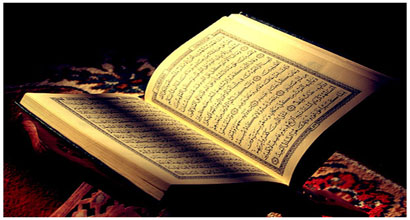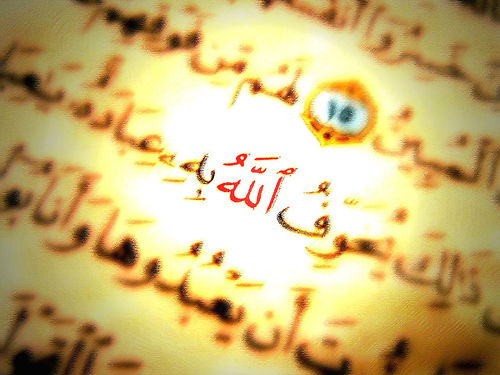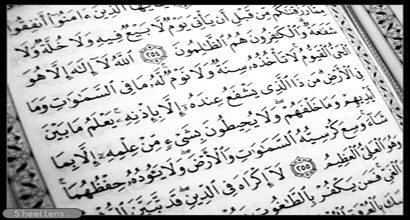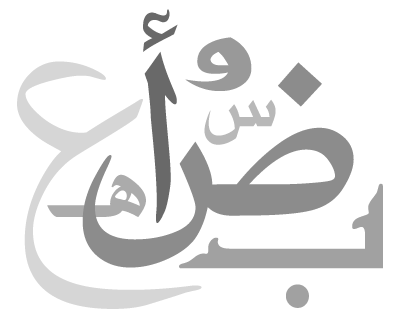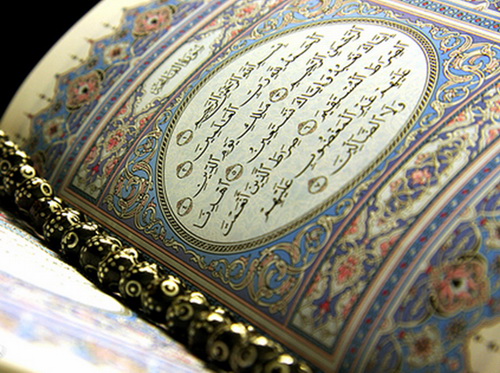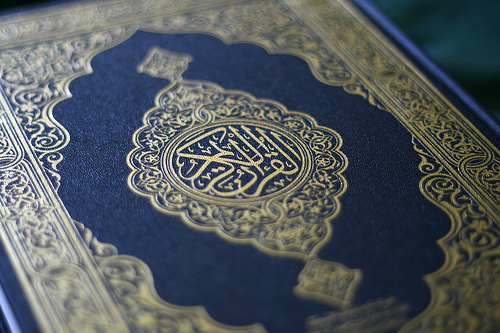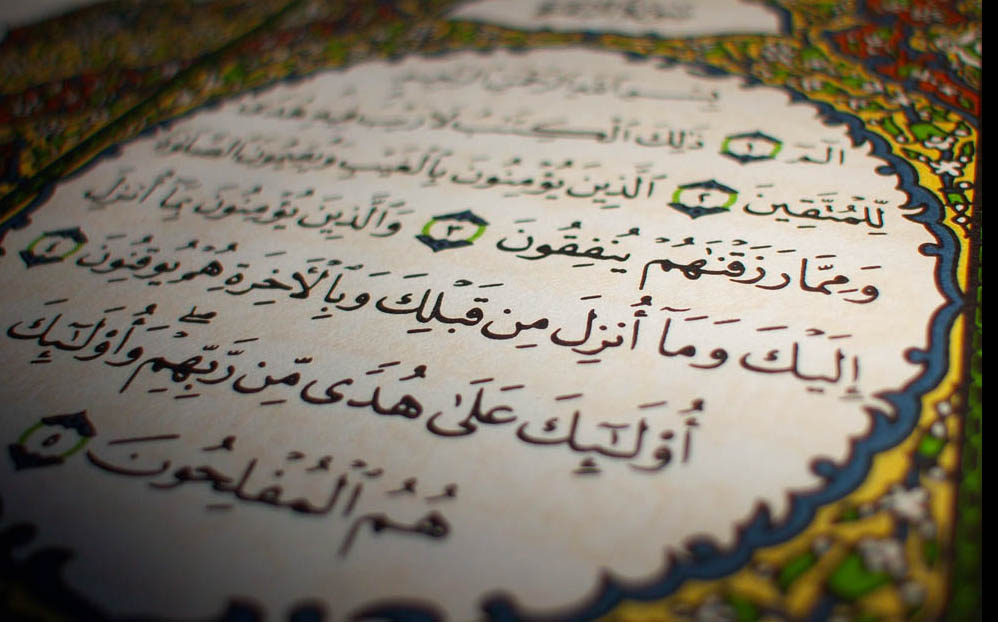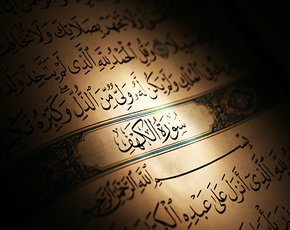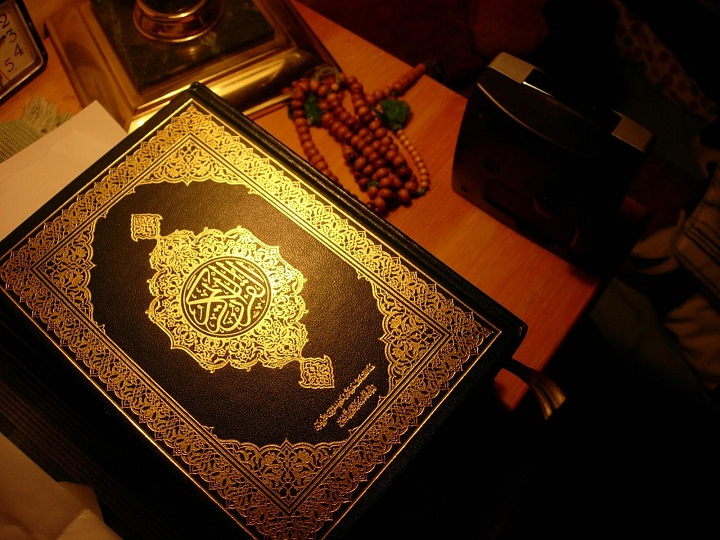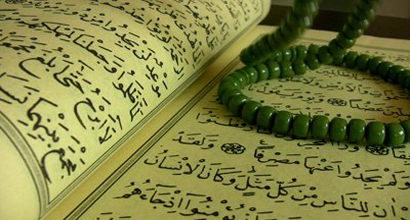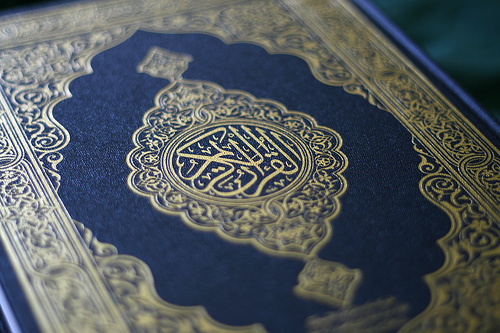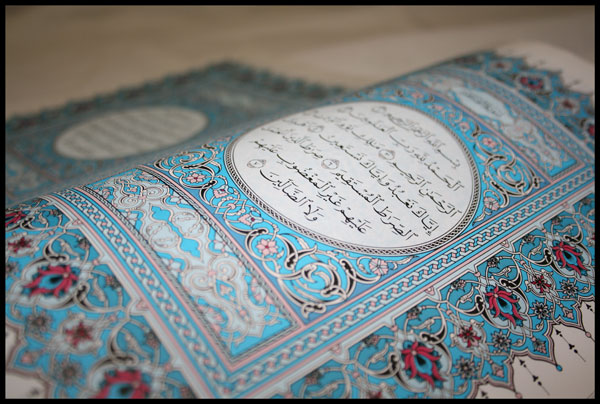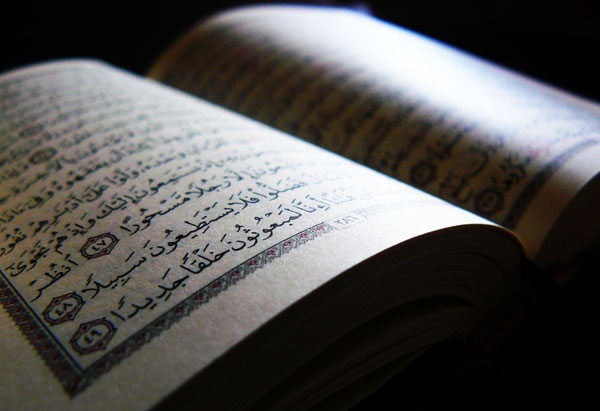About the Qur'an
-
How was the Qur’an compiled in the life of the Prophet (peace be upon him)? How was the Qur’an compiled in the Life of Abu Bakr and `Uthman? What do you know about the great role of Zayd ibn Thabit in compiling the Qur’an?
-
Even on the enemies of Islam and non-believers at the time of the Prophet (peace be upon him) the impact of the Qur’an was strikingly demonstrated. Till today you can see how…
-
How could one increase his love for the Qur’an? What are the means for reciting Qur’an properly? Does everyone need to read the Qur’an, and why? Find the answers to these questions and more….
-
What is the reward of reciting Ayat Al-Kursi? Is it permissible to hang it as a kind of talisman? In what case is it permissible to hang it? What is the rule of hanging frames with the Names of Allah?
-
Allah the Almighty says: "Behold, We have sent it down in all clarity, in the Arabic tongue, so that you might encompass it with your reason." (Yusuf 12:2) Why was the Qur'an revealed in Arabic? To know the answer to this question, watch this short talk by Dr. Zakir Naik.
-
In this 80-minute lecture Dr. Jamal Badawi is discussing the issue of the preservation of the Qur'an. Firstly, he starts with the internal evidence within the Qur'an itself of its preservation. Secondly, he elaborates on the external evidence by examining the three major stages through which the Qur'an was preserved at the times of the Prophet (peace and blessings be upon him), Abu Bakr As-Siddiq and `Uthman ibn `Affan (May Allah be pleased with them). Thirdly, he reflects on the objections often made by western scholars and orientalists and responds to some of their allegations. Join us to learn about this interesting area of study as it is related to the Book of Allah, the most authentic and authoritative book ever existed.
Correct your Recitation
-
madd & its types – (Part 8)
-
madd & its types – (Part 6)
-
The characteristics of the letters (Part 8)
-
What do you know about the Glorious Throne? What do you know about the stories of old nations in the Qur’an?
-
madd & its types – (Part 5)
-
madd & its types – (Part 4)
The Noble Emissaries
-
Rules of Madd (Elongation) – Part Four
-
Idghaam (Merging) – Part Two
-
Isti`laa (tongue is raised to the roof of the mouth), Itbaq (mouth is closed, puckered up from inside), and Qalqalah (moving or shaking of sound, only happens on a silent letter)
-
Makharij al-Lisan (Points of Articulation of the Tongue) Part Two
-
Isti`laa (tongue is raised to the roof of the mouth), Itbaq (mouth is closed, puckered up from inside), and Qalqalah (moving or shaking of sound, only happens on a silent letter)
-
Rumuz al-Awqaf (Stop Signs)
Categories
- About the Qur'an (41)
- Recite & Memorize (13)
- Correct your Recitation (67)
- Double Reward (26)
- The Noble Emissaries (30)
- Qur’an Interpretation (7)
- In the Light of the Qur’an (53)
- Reflections by Suhaib Webb (25)
- Understanding Surat Yusuf (20)
- English Translation (241)
- Mishari bin Rashid (114)
- Al-Ajmi, Al-Ghamidi, and Al-Lahuni (112)
- Chinese Translation (26)
- German Translation (114)
- French Translation (142)
- Albanian Translation (31)
- Spanish Translation (110)
- Uzbek Translation (112)
- Indonesian Translation (112)
- Italian Translation (30)
- Russian Translation (113)
- Romanian Translation (71)
- Indian Translation (18)
Copyright 2025 DFN, EDC. All Rights Reserved. powered by: Da`wah Beyond Borders



